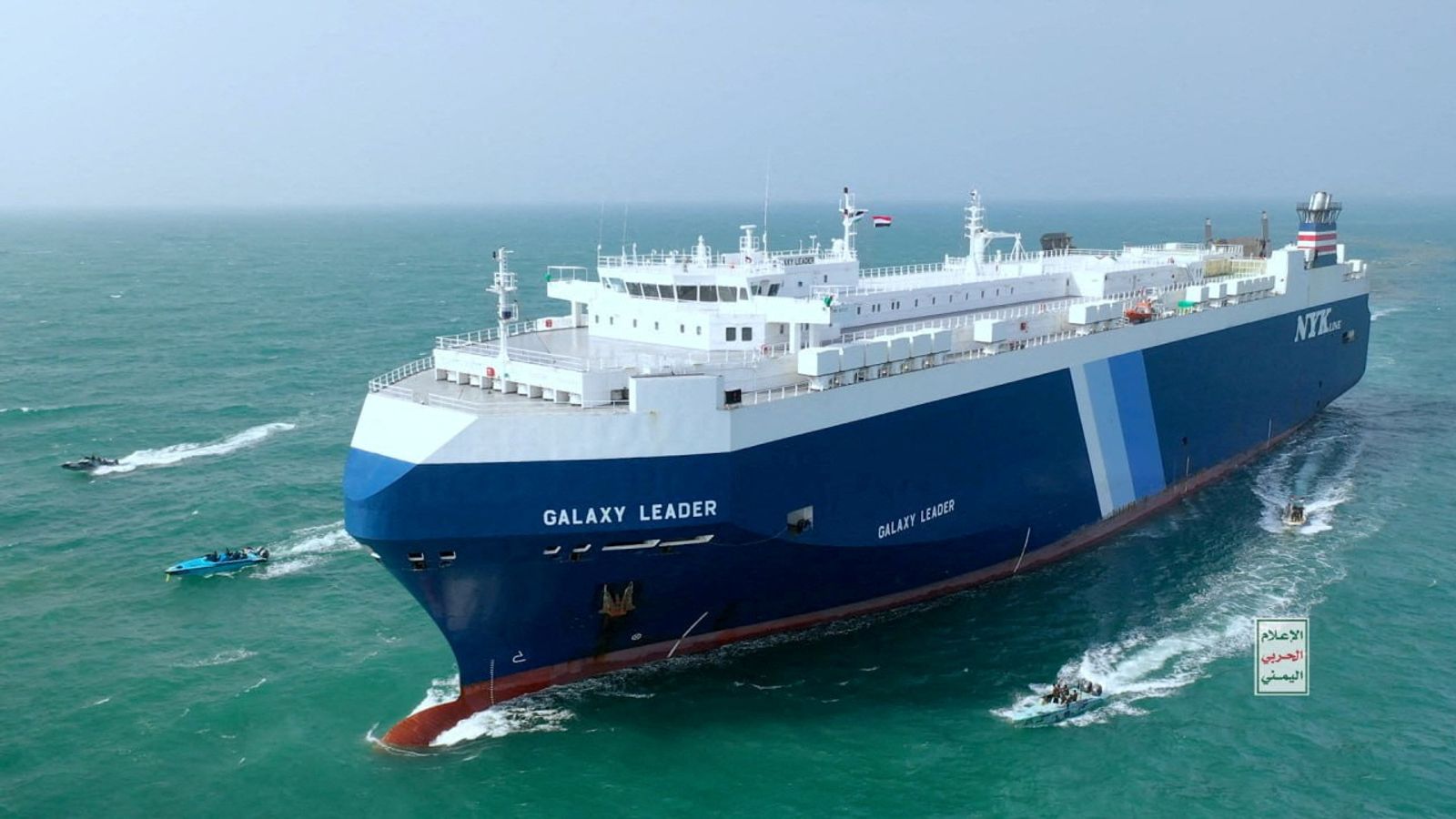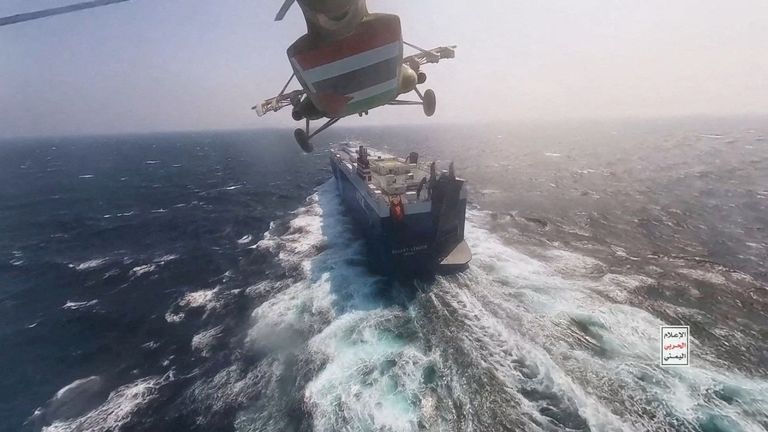The cost of shipping goods has increased by 45% in the past week as major companies paused activity in the Red Sea global supply artery and chose diversions that can add an extra two weeks to journey times.
The most widely used measure of freight cost, the Shanghai Containerised Freight Index (SCFI), rose by almost half to $1,497 (£1,177) per container from last Friday, according to data given to Sky News by global logistics company, DSV.
The SCFI measures the average cost of a 20ft-long container being shipped from Shanghai to Europe. Last week that cost was $1,029 (£809). There are also indications that the figure could go up even further.
Most goods will spend at least part of their supply chain journey to consumers at sea. As a result, the cost of that shipping influences the prices being paid at checkouts.
The Red Sea is a vital shipping route, connecting the Indian Ocean to the Mediterranean via the Suez Canal. Avoiding the area can mean travelling down and around Africa via the Cape of Good Hope, adding between 10 and 14 days to a journey.
But transport giants have paused deliveries to Red Sea ports and ordered diversions as Yemen’s Houthi rebels have stepped up attacks on vessels it believes are heading into and out of Israel, in support of Palestinians.
Many of the world’s largest shipping companies – including MSC, Maersk, CMA CGM, and Hapag-Lloyd – are diverting many if not all planned Red Sea journeys via South Africa with some ordering vessels to pause in safe areas until further notice.
Supply delays have already been announced by the Swedish interiors company, IKEA. Some products may not be available, it said.
Shipping costs have been steadily on the rise since 19 November when an Israeli-linked cargo ship was seized by the Houthi rebels.
Then on 1 December, the UK Warlike Operations Area Committee (WOAC) – consisting of unions Nautilus International and the RMT, along with the UK Chamber of Shipping – issued recommendations for ships with an owner or management connection to Israeli-owned companies.
It means increased insurance costs for such vessels; that mariners are paid more for their work onboard and have the right to refuse the journey without being fired.
Those designations could be extended beyond ships with Israeli owner connections as the UK WOAC keeps all warlike operations areas under “constant review”.
As a result, shipping costs could rise further.
While costs have been on the up in recent weeks they’re still below the highs seen in March 2021 when the Ever Given container ship blocked the Suez Canal.
There will be a human cost as well with some seafarers missing Christmas due to rerouting, former captain and Merchant Navy medal recipient Stephen Gudgeon told Sky News.
“It’s important that we don’t forget families at home. Especially if there are a number of people who would have been home for Christmas, can you imagine how their children are feeling?”, Mr Gudgeon said.
“It’s traumatic for a seafarer because you’ve got no control.”
Those working onboard may face extra stress from possible adverse weather conditions by taking the long way around, by the Cape of Good Hope and experiencing low supplies, he added.

